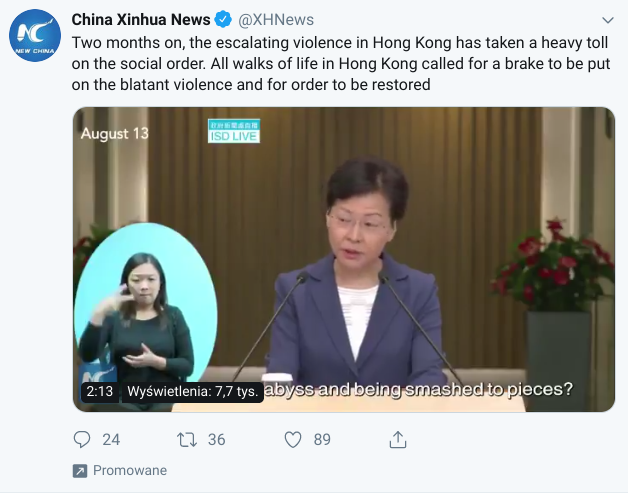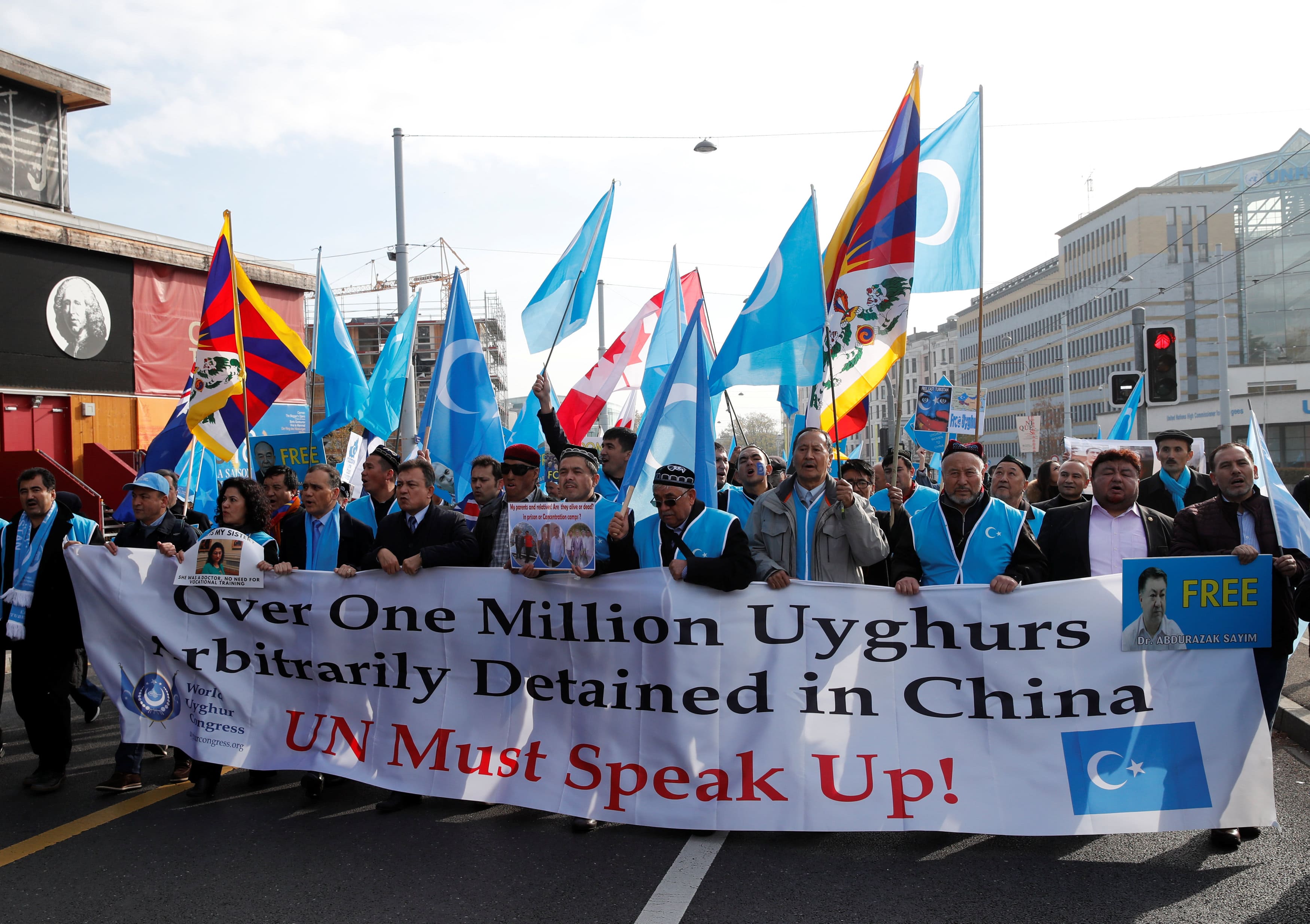By Raymond Zhong

TAIPEI, Taiwan — At first glance, the bespectacled YouTuber railing against Taiwan’s president, Tsai Ing-wen, just seems like a concerned citizen making an appeal to his fellow Taiwanese.
He speaks Taiwanese-accented Mandarin, with the occasional phrase in Taiwanese dialect.
His captions are written with the traditional Chinese characters used in Taiwan, not the simplified ones used in China.
With outrage in his voice, he accuses Ms. Tsai of selling out “our beloved land of Taiwan” to Japan and the United States.
The man, Zhang Xida, does not say in his videos whom he works for.
But other websites and videos make it clear: He is a host for China National Radio, the Beijing-run broadcaster.
As Taiwan gears up for a major election this week, officials and researchers worry that China is experimenting with social media manipulation to sway the vote.
Doing so would be easy, they fear, in the island’s rowdy democracy, where the news cycle is fast and voters are already awash in false or highly partisan information.
China has been upfront about its dislike for President Tsai, who opposes closer ties with Beijing.
The Communist Party claims Taiwan as part of China’s territory, and it has long deployed propaganda and intimidation to try to influence elections here.
Polls suggest, however, that Beijing’s heavy-handed ways might be backfiring and driving voters to embrace Ms. Tsai.
Thousands of Taiwan citizens marched last month against “red media,” or local news organizations influenced by the Chinese government.
That is why Beijing may be turning to subtler, digital-age methods to inflame and divide.
Recently, there have been Facebook posts saying falsely that Joshua Wong, a Hong Kong democracy activist who has fans in Taiwan, had attacked an old man.
There were posts about nonexistent protests outside Taiwan’s presidential house, and hoax messages warning that ballots for the opposition Kuomintang, or Chinese Nationalist Party, would be automatically invalidated.
 In the southern city of Kaohsiung, thousands marched at a Dec. 21 rally to oppose pro-Beijing Han Kuo-yu, the presidential candidate for the Kuomintang.
In the southern city of Kaohsiung, thousands marched at a Dec. 21 rally to oppose pro-Beijing Han Kuo-yu, the presidential candidate for the Kuomintang.So many rumors and falsehoods circulate on Taiwanese social media that it can be hard to tell whether they originate in Taiwan or in China, and whether they are the work of private provocateurs or of state agents.
Taiwan’s National Security Bureau in May issued a downbeat assessment of Chinese-backed disinformation on the island, urging a “‘whole of government’ and ‘whole of society’ response.”
“False information is the last step in an information war,” the bureau’s report said.
“If you find false information, that means you have already been thoroughly infiltrated.”
Taiwanese society has woken up to the threat.
The government has strengthened laws against spreading harmful rumors.
Companies including Facebook, Google and the messaging service Line have agreed to police their platforms more stringently.
Government departments and civil society groups now race to debunk hoaxes as quickly as they appear.
The election will put these efforts — and the resilience of Taiwan’s democracy — to the test.
“The ultimate goal, just like what Russia tried to do in the United States, is to crush people’s confidence in the democratic system,” said Tzeng Yi-suo of the Institute for National Defense and Security Research, a think tank funded by the government of Taiwan.
 In Taiwan, civil society groups such as FakenewsCleaner have worked to fact check social media posts and educate the public about disinformation.
In Taiwan, civil society groups such as FakenewsCleaner have worked to fact check social media posts and educate the public about disinformation.Fears of Chinese meddling became acute in recent months after a man named Wang Liqiang sought asylum in Australia claiming he had worked for Chinese intelligence to fund pro-Beijing candidates in Taiwan, buy off media groups and conduct social media attacks.
And there are other signs that Beijing is working to upgrade its techniques of information warfare.
Twitter, which is blocked in mainland China, recently took down a vast network of accounts that it described as Chinese state-backed trolls trying to discredit Hong Kong’s protesters.
A 2018 paper in a journal linked to the United Front Work Department, a Communist Party organ that organizes overseas political networking, argued that Beijing had failed to shape Taiwanese public discourse in favor of unification with China.
In November, the United Front Work Department held a conference in Beijing on internet influence activities, according to an official social media account.
The department’s head, You Quan, said the United Front would help people such as social media influencers, live-streamers and professional e-sports players to “play an active role in guiding public opinion.”
“We understand that the people who are sowing discord are also building a community, that they are also learning from each other’s playbooks,” said Audrey Tang, Taiwan’s digital minister.
“There are new innovations happening literally every day.”
In Taiwan, Chinese internet trolls were once easily spotted because they posted using the simplified Chinese characters found only on the mainland.
That happens less these days, though there are still linguistic slip-ups.

Audrey Tang, the digital minister of Taiwan.
In one of the YouTube videos from Zhang, the China National Radio employee, a character in the description is incorrectly translated into traditional Chinese from simplified Chinese.
Zhang did not respond to a message seeking comment.
In December, Taiwan’s justice ministry warned about a fake government notice saying Taiwan was deporting protesters who had fled Hong Kong.
The hoax first appeared on the Chinese social platform Weibo, the ministry said, before spreading to a Chinese nationalist Facebook group.
Sometimes, Chinese trolls amplify rumors already floating around in Taiwan, Mr. Shen said.
He is also on the lookout for Taiwanese social media accounts that may be bought or supported by Chinese operatives.
Ahead of midterm elections in 2018, his team had been monitoring several YouTube channels that discussed Taiwanese politics.
The day after voting ended, the channels disappeared.
After Yu Hsin-Hsien was elected to the City Council that year in Taoyuan, a city near Taipei, mysterious strangers began inquiring about buying his Facebook page, which had around 280,000 followers.
Mr. Yu, 30, immediately suspected China.
His suspicions grew after he demanded an extravagantly high price and the buyers accepted.
Mr. Yu, who represents Ms. Tsai’s party, the Democratic Progressive Party, did not sell.
“Someone approaches a just-elected legislator and offers to buy his oldest weapon,” Mr. Yu said. “What’s his motive? To serve the public? It can’t be.”
Recently, internet users in Taiwan noticed a group of influencers, many of them pretty young women, posting messages on Facebook and Instagram with the hashtag #DeclareMyDeterminationToVote. The posts did not mention candidates or parties, but the people included selfies with a fist at their chest, a gesture often used by Han Kuo-yu, the Kuomintang’s presidential candidate.
Han’s campaign denied involvement.
But some have speculated that China’s United Front might be responsible.
The United Front Work Department did not respond to a fax requesting comment.
One line of attack against Ms. Tsai has added to the atmosphere of mistrust and high conspiracy ahead of this week’s vote.
Politicians and media outlets have questioned whether Ms. Tsai’s doctoral dissertation is authentic, even though her alma mater, the London School of Economics, has confirmed that it is.








